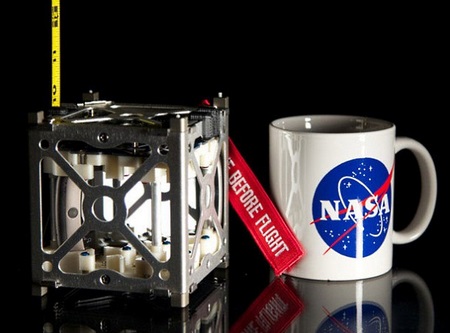NASA: satellite smartphone called PhoneSat
A year ago NASA had hoped to embark on the development of satellites much cheaper and much lighter, a kind of low-cost satellites. The idea quickly turned to smartphones that are jewels of technology and featuring extreme miniaturization of many commonly used by NASA tools like GPS, cameras, cameras, compass, etc..

Also, put in orbit smartphones will limit the cost of a mission. The average price of a PhoneSat be around 3500 to 7000 dollars. These are HTC Goole Nexus One running Android that have been selected by NASA. The only significant change in the smartphone was the addition of a large capacity battery, which can take 15 days, the time required before falling back to earth Phonesats their low orbit.
Benefits smartphones NASA satellites
Several other benefits that the price should be noted in the shipment of smartphones in space and should democratize the micro satellites. The dimensions of the three Phonesats (Alexander Graham Bell and) do not exceed 10 to 15 centimeters. In the future it will be possible to carry a lot in a space mission.
It is also possible to communicate with them all via SMS and send all kinds of data easily. The Android operating system can take advantage of thousands of applications and thus to exploit the mini satellite in many business areas. It should be possible for private companies or universities can finally work on projects, which until now denied them the space world.
Ardusat company raised funds to create community satellites that type and Planetary Resources company wants to send a fleet of mini probe of its kind in the area to become a leader in mining exploration in space. Smartphones have therefore not finished surprising us every day! ![]()
No comments:
Post a Comment